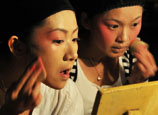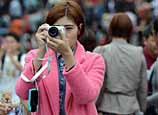
With years of standstill of Doha Round, the United States and Europe motives for pursuing "Trans-Pacific Strategic Economic Partnership Agreement" (TPP) and starting the U.S.-E.U. Free Trade Agreement negotiations are apparent. That is, try to retain and control dominance in regional economic and trade agreements, shape the WTO Doha Round and the following negotiations according to their own wills by outflanking. If the attempt succeeds, Asia, whose shares rise fastest in the global trading system, will be the most affected area.
Certainly, if the United States and Europe demands in the Doha Round are completely fair and reasonable, and are consistent with the Doha Round development guidance, the above U.S. and EU strategy motives are not poisonous. Uneven distribution of benefits and burdens has been the largest problem in the trend of economic globalization since the 1990s; compared with the heavy transformation burdens, benefits that the developing nations enjoy from globalization are so few. Rules of the two pillar organizations in the context of economic globalization, WTO and IMF, are faulty in this regard, and have more problems during implementation.
It is hoped that while shaping the WTO negotiations, the United States and Europe can remember any "development" should benefit as many members as possible. If the reasonable demands of developing nations for growth are neglected, damage will be caused to both the North and South.
Read the Chinese version at: 美歐自貿協定禍福難測, Source: People's Daily Overseas Edition, Author: Mei Xinyu

















 The new generation of 'best paid' jobs
The new generation of 'best paid' jobs


![]()
